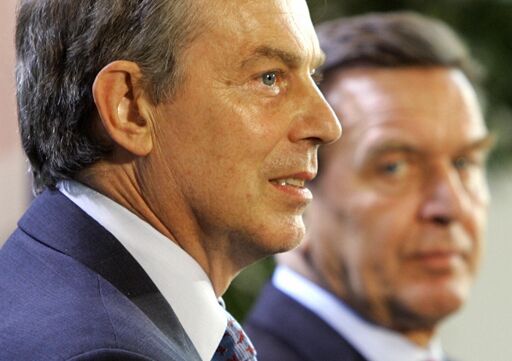
Europe’s Punching Bag
The blatant refusal by the French and Dutch to support ratification of the EU constitution abruptly choked off further European integration. The goal of unification appears to be faltering; the future of the Continent is at stake.
Yet, in spite of this dilemma staring them in the face, most European leaders have turned to focus on another, decidedly smaller issue: the British rebate.
Each year, Britain is handed back two thirds of the difference between its gross yearly contribution to the EU and the money it receives back from Brussels. Margaret Thatcher secured the monetary rebate from the EU in 1984 after noting how little Britain received from the EU, compared to the massive amounts of money it paid to the Union. The rebate amounts to over €4 billion to Britain annually.
Open confrontation over the issue started when French President Jacques Chirac, still frustrated by the outcome of his nation’s referendum, insisted that Britain surrender its annual budget rebate. With support from German Chancellor Gerhard Schröder, Chirac said, “The time has come for our English friends to understand that they have to make a gesture of solidarity for Europe” (Reuters, June 9).
Within hours of Chirac’s jibe, Britain’s Tony Blair responded, “Britain has been making a gesture. … Over the past 10 years, even with the British rebate, we have been making a contribution to Europe two and a half times that of France. Without the rebate, it would have been 15 times as much as France, so that is our gesture.” Nevertheless, leaders from across Europe began to bombard Britain with demands to give up its rebate.
EU budget talks last week, initially viewed by European leaders as a timely opportunity to get back on track toward unification, quickly broke down over the rebate issue. Despite tremendous pressure from Luxembourg’s prime minister, Jean-Claude Juncker, who currently holds the rotating EU presidency, and other leaders, Tony Blair refused to accept a deal suspending the rebate.
Mr. Blair’s persistent refusal to forego the rebate is receiving much support across Britain. But it is not going over well in the rest of Europe. Many view it as simple rebellion against the wishes of every other EU nation—a position so provocative that it calls into question London’s desire to make Europe work!
In an unexpected way, last week’s budget talks did go a long way toward curbing the disunity presently facing Europe. As the talks progressed, European leaders grew strongly united in their ridicule of and frustration toward Britain.
Britain became Europe’s punching bag.
Across the Continent EU officials continue to fall in line behind the Franco-German view that the British rebate issue threatens to destroy the European dream. Ironically, at a time of rampant disunity, it is the issue of the British rebate that has surfaced to become a unifying instrument in EU politics.
This whole affair is another instance of Britain being isolated from the EU. The rebate issue is driving a wedge between European nations and Britain. The Trumpet has said it for years, but we’ll say it again: Britainwill soon cease to be a part of the European Union.
Watch for frustration and anger toward Britain to fester. The time is approaching when Britain will no longer remain a member of the European Union!
